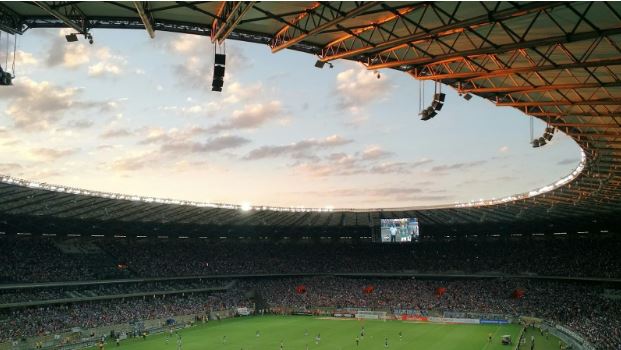The 2025 FIFA Club World Cup final promises a spectacle worthy of its grand setting. Chelsea and Paris Saint-Germain (PSG), two storied European clubs, are set to clash at MetLife Stadium in New Jersey, drawing the curtain on a revamped tournament format with global reach.
With PSG chasing an unprecedented fifth trophy this season and Chelsea aiming to reassert their continental pedigree, the stakes couldn’t be higher.
Fans can expect more than just elite football; they’re about to witness a collision of strategies, momentum, and ambition. From emerging stars to tactical showdowns, this final has all the ingredients of a modern classic. Here’s what to expect when the final whistle blows on July 14.
PSG’s Unstoppable Run Signals Historic Ambitions
Few teams have approached the 2025 season with the relentless drive of Paris Saint-Germain. With four trophies already in hand, including Ligue 1, Coupe de France, Champions League, and now a spot in the Club World Cup final, PSG is on the verge of a historic quadruple.
Their path to the final has been nothing short of dominant. In the semifinal, they decimated Real Madrid 4-0, controlling 67% of possession and completing 631 passes to Madrid’s 255. Dembélé and Ruiz led the charge, each scoring early to establish control. Having outscored opponents 16-1 across six tournament games, PSG’s combination of high press, fluid midfield play, and clinical finishing has proven nearly unstoppable.
Chelsea’s Rebuild Bears Fruit on the Global Stage
Chelsea entered the tournament as underdogs, fresh off a Conference League win and still in transition under coach Enzo Maresca. Yet the Blues have defied expectations. A 2-0 semifinal win over Fluminense showcased their blend of youth and tactical adaptability. João Pedro’s standout performance up front and Cole Palmer’s midfield creativity have given Chelsea a fresh attacking identity.
Even with key absences, such as Liam Delap, who is sidelined, and Moisés Caicedo, who remains doubtful, Chelsea’s ability to exploit wide spaces and press in phases has made them dangerous. While not as dominant as PSG, they’ve shown the kind of balance and composure that make upsets possible, especially in one-off finals where momentum can shift rapidly.
Tactical Matchup: PSG’s Depth vs Chelsea’s Dynamism
Expect a clash of strategies in New Jersey. PSG under Luis Enrique favors a high-possession, vertical style, relying on quick transitions and collective pressing. In contrast, Chelsea blends structured buildup with bursts of improvisation, leveraging Palmer’s vision and João Pedro’s directness.
PSG’s tactical edge lies in its depth; ten different players have scored for them in the tournament. However, they’ll face challenges without suspended defenders Pacho and Lucas Hernandez, both banned after red cards in the quarterfinals.
This defensive reshuffling could open opportunities for Chelsea’s wide attackers. On the other end, PSG’s midfield trio, featuring Ruiz and João Neves, will look to control tempo and force turnovers high up the pitch.
Spotlight on Dembélé: The X-Factor Returns
After recovering from a quadriceps strain, Ousmane Dembélé is back, and he’s already making an impact. With 21 league goals this season and a recent return to PSG’s starting lineup, his pace and unpredictability add a potent edge to an already explosive attack. In the semifinal against Madrid, Dembélé scored within the first 10 minutes, capitalizing on a defensive miscue.
His presence widens PSG’s threat map, forcing defenders to stretch and often creating space for Ruiz or Ramos to strike. With the club world cup odds favoring PSG, Dembélé’s form may well be the deciding factor.
Chelsea’s Young Core Faces the Ultimate Test
While PSG brings experience and chemistry, Chelsea’s strength lies in its youthful hunger. João Pedro’s breakout performance against Fluminense wasn’t just opportunistic; it was clinical. Palmer, often deployed as a hybrid playmaker, has shown composure beyond his years, unlocking defenses with sharp passing and spatial awareness.
This final will test whether Chelsea’s young talents can sustain their form under intense pressure. The key will be resisting PSG’s early press and establishing control in midfield without Caicedo. Defensive organization will also be critical, with any lapse likely to be swiftly punished by PSG’s quick counters. For Chelsea, it’s not just about tactics; it’s a test of resilience.
MetLife Stadium and the Arrival of Global Football
Hosting this final at the 82,500-seat MetLife Stadium in New Jersey underscores the Club World Cup’s evolution into a marquee global event. It’s also a symbolic moment: two European giants battling for a global title on American soil, in front of a diverse fanbase.
For PSG fans, who were a minority in the semis despite the win over Madrid, it’s another step in building a global brand. Chelsea, already popular in the U.S. through past tours and Premier League coverage, also stands to strengthen its following.
The atmosphere, the stakes, and the storylines converge to make this more than a football match; it’s a landmark cultural moment for the sport in America.
What This Game Means for the Future
Beyond silverware, the 2025 Club World Cup final may shape the legacy of both clubs. For PSG, victory would cement their transition from a star-studded ensemble to a cohesive, history-making team. It would validate Enrique’s system and the club’s post-Mbappé era.
For Chelsea, a win could redefine their rebuild narrative, signaling that their investment in youth is already yielding global returns. More broadly, the final could shift perceptions of the Club World Cup itself, from an afterthought to a must-watch showdown of champions. One thing is clear: this match will reverberate far beyond New Jersey, setting the tone for a new era of international club competition.


